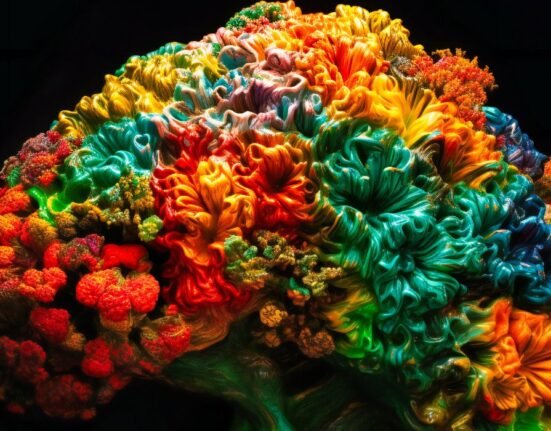You would have come across or heard of expressions like “Real men don’t cry”, “Real men are not emotional” and “Men are more logical than women”. These questionable phrases prescribe how men are supposed to act, think, feel or behave and also promotes the idea that masculinity can be tied up neatly into a box, which is a false narrative.
So how exactly are men supposed to function and how does masculinity factor into this? Let’s first understand the significance of masculinity and then learn about how outdated or false narratives of masculinity can have an adverse impact on mental health.
What is Masculinity?
Masculinity is the term attributed to the set of behaviors and roles that the society considers as being male or masculine. It consists of certain qualities and expectations connected to men and includes how a man conducts or expresses himself in specific social or cultural scenarios. Masculinity can be different based on the time period, culture, society and the community that a man comes from.
Traditionally, certain qualities like leadership, stoicism, independence, logical aptitude and assertiveness have been denoted as masculine. However, recent research indicates that ‘manhood’ is not limited to the above traits. Traits such as authenticity, vulnerability, sensitivity, and compassion are also recognized as markers of masculinity.
The regressive concepts that place limitations on how a man should function have been addressed by the recent explorations into the different manifestations of masculinity. Modern discussions encourage men to be more inclusive, diverse and complex instead of following the universal and rigid approaches from the past. The newer movement promotes the idea that masculinity is a multidimensional and evolving construct.
You would have often heard of the term ‘toxic masculinity’ on social media and other platforms. When men have a mentality or exhibit behaviors that often cause more harm than good such as showing aggression or emotional suppression, it is attributed to toxic masculinity. These behaviors have a tendency to also harm the people associated with these men whether it’s their partners, parents, children or any other relationships.
Toxic masculinity overemphasizes the sentiment that some attributes or traits are “ideal” for men. This vehemence towards ideologies that are deemed exclusively masculine can hinder healthy expression of emotions, cause a strain in relationships and contribute to inequality between genders. Toxic masculinity can manifest as:
Hyper Independence
Men who have been raised in environments where they were taught not to rely on others and not to ask for help tend to display hyper-independence. Even when they’re going through a crisis or challenging times, they would refuse to reach out for support. Men with hyper-independence would place importance on solving their problems on their own and prefer emotionally isolating themselves. These men are also less likely to access mental health services that would support them.
When hyper-independence comes into play, it majorly impacts social relations and intimacy. It can affect mental health and contribute to depression, anxiety, stress and mood disorders. Men who are used to being self-reliant may feel a sense of shame or hesitancy to go for therapy and open up about their personal challenges, which will make them feel even more isolated.
Excessive Competitiveness
There is a general consensus among men that they must perpetually compete and triumph in various settings like sports, academics, work, and interpersonal relationships. They end up feeling angry, frustrated, insecure and envious when they are unable to win in everything that they compete in. When their expectations are not met, they feel a sense of inadequacy or emptiness.
When there is an unreasonable desire for competition, it can lead to burnout, self-sabotage, unhealthy rivalries and conflicts. Excessive competitiveness can hinder collaboration between people and leads to negative impressions that will further curb the sense of mutual growth and development.
Rejection and discrimination
One of the common toxic false narrative propagated by toxic masculinity is the inherent rejection of anything that is considered ‘weak’ or ‘feminine’. There is a general insistence to conform to hyper-masculine or hetero-normative ideologies. Men who vehemently subscribe to these ideals are likely to have homophobic or trans-phobic tendencies and would face repercussions for rejecting or abusing people whom they regard as inferior.
When gender diversity and inclusiveness of sexual orientations are not accepted among men with toxic masculinity, it can discriminate individuals from the LGBTQIA+ community and contribute to harmful behaviors like bullying, gender violence and sexual coercion. Exhibiting toxic masculinity can also alienate and marginalize people who deviate from traditional gender norms.
Sexual Objectification
Men influenced by toxic masculinity may view women as objects to be conquered or won and associate their own value on the ability to dominate women sexually. This belief system can promote the objectification of women, blatant sexism and misogyny. It can contribute to inequality in sexual dynamics, harassment, sexual abuse, gender violence and consent violations.
Read More: SILENCING THE SILENCE: Amplifying Women’s Voices in a Patriarchal Society
Respecting people and their boundaries is essential when the world is shared by people of all genders and orientations. The urge to dominate a person and view them as a symbol that boosts one’s worth and reputation is a discordant and regressive approach that will only widen the gap that is already present between people and cause perpetual fear and trauma among genders.
Emotional Dysfunction
Toxic masculine ideals that often value emotional suppression or denial of having emotions can perpetuate dysfunction in relationships, at the workplace and other social contexts. As men are often encouraged to endure and suppress feelings of fear, vulnerability, sadness and hurt, they avoid expressing themselves and choose to hide how they truly feel.
When they internalize these emotions and have no outlet, it can develop into challenges like depression, anxiety, stress and cause difficulties in forming secure and deep relationships. As anger and aggression are emotions that are not traditionally discouraged for men, excessive outbursts of aggression or rage become unhealthy coping mechanisms for them and they are also more likely to indulge in substance abuse or destructive behaviors.
Aggressive behaviors can also manifest as bullying, violence, sexual assault and toxic relationships. These behaviors that are driven towards control or asserting power tend to be normalized in workplaces, homes and the society. Phrases like “Boys will be boys”, “Don’t cry like a girl”and other harmful sentences can affect the mental framework of men and takes away their personal accountability when they don’t challenge their own thoughts/impulses and continue to engage in any toxic or abusive behaviors.
Inability to handle Rejections
A commonly observed behavior that men with toxic ideas of masculinity exhibit is their inability to handle rejection in many aspects of their life including relationships, work, academics and so on. This inability to take any form of rejection comes from a fear of being rejected or abandoned. When they engage in behaviors that breach boundaries, cause bodily harm or affects someone’s mental health, it becomes a social issue. For example, a lot of women are familiar with the fear they feel when they reject a man’s advances which then leads to him retaliating in a visceral manner.
How can men take better care of their Mental Health?
The first step towards addressing toxic masculinity is by challenging its core beliefs such as the need for emotional suppression. Encouraging vulnerability and openly expressing all ranges of emotions including sadness, fear, or anxiety without fear of being perceived as weak will be a great start. Awareness programs and mental health discussions that foster emotional openness can break down the insurmountable walls of toxic masculinity.
When men define masculinity on their own terms and embrace it as a flexible and multi-faceted construct, they are not restricted by cultural or societal norms that dictate how a man is supposed to behave. For example, academic and professional settings that value and foster the full range of personality traits such as compassion, adaptability, teamwork, emotional intelligence, vulnerability healthy competition and other collaborative efforts can encourage men to freely express and be themselves, without harming others.
When men actively advocate or stand up for gender equality and challenge regressive gender roles, they can bring down the systemic patriarchy, gender hate and violence against marginalized groups. They can begin by looking at the way gender and its norms are defined right from their homes to the community they are a part of. For example, by observing the unreasonable standards that a woman is held to in the same household where her male sibling doesn’t have any of these unnecessary restrictions or expectations, a man can understand that there is an injustice and differences in the way the parents treat him and his sibling also the struggles and experiences faced by his sibling.
By broadening the narrative on what constitutes as being a man, men can bring a much needed revolution in the world. They can facilitate this movement by actively advocating for social justice that impact all genders and sexual orientations. By addressing the fear of not being accepted among their peers or other genders, men can begin to gain a better understanding of their emotional attachment styles and engage in emotional intimacy.
Practicing self-compassion, expressing fear and more profound emotions can end the era of toxic masculinity and foster healthier dynamics with the other genders. Seeking therapy and counseling without projecting feelings of fear and shame can help men in understanding themselves, use better coping mechanisms, communicate their needs/emotions/desires in a healthier manner and address the dynamic challenges in their life.
Conclusion
To sum it up, masculinity is a combination of self-identity and a multi-dimensional social construct that is constantly developing and is heavily influenced by culture, family, community and the society. Fostering a healthier, more inclusive and diverse form of masculinity will help us to relate with our counterparts, form meaningful connections and lead a more expressive and fulfilling life.
References +
- Jones, R. E., & Lopez, K. H. (2006). The human sexual response. In Elsevier eBooks (pp. 193–229). https://doi.org/10.1016/b978-0-08-050836-8.50012-3
- Bhatti, F. (2022). Introductory chapter: Contributions to Masculinity Studies. In IntechOpen eBooks. https://doi.org/10.5772/intechopen.107381
- Moran, J. B., & Burch, R. L. (2023). Repercussions of rejecting unwanted advances: gender differences in experience and concern. International Journal of Sexual Health, 35(1), 123–129. https://doi.org/10.1080/19317611.2023.2175098
- Men and Mental Health. (n.d.). National Institute of Mental Health (NIMH). https://www.nimh.nih.gov/health/topics/men-and-mental-health
- Sweeney, J., O’Donnell, S., Roche, E., White, P. J., Carroll, P., & Richardson, N. (2024). Mental Health Stigma Reduction Interventions among Men: A Systematic review. American Journal of Men S Health, 18(6).https://doi.org/10.1177/15579883241299353
- Chatterjee, N. D. (2024). Man up: A Study on how men Deal with mental health issues. International Journal of Science and Research Archive, 12(1), 683–687. https://doi.org/10.30574/ijsra.2024.12.1.0869
- Sheikh, A., Payne-Cook, C., Lisk, S., Carter, B., & Brown, J. S. L. (2024). Why do young men not seek help for affective mental health issues? A systematic review of perceived barriers and facilitators among adolescent boys and young men. European Child & Adolescent Psychiatry. https://doi.org/10.1007/s00787-024-02520-9
- Doornbos, M. M., Zandee, G. L., & Bjelland, C. (2024). Men’s mental health – Conceptualization, effects, and coping. Archives of Psychiatric Nursing, 50, 100–107. https://doi.org/10.1016/j.apnu.2024.03.014
- Bilsker, D., Fogarty, A. S., & Wakefield, M. A. (2018). Critical issues in men’s mental health. The Canadian Journal of Psychiatry, 63(9), 590–596. https://doi.org/10.1177/0706743718766052
- Harris, B. (n.d.). Toxic Masculinity: an exploration of traditional masculine norms in relation to mental health outcomes and Help-Seeking behaviors in College-Aged males. https://scholarcommons.sc.edu/senior_theses/431/?utm_source=scholarcomons.sc.edu%2Fsenior_theses%2F431&utm_medium=PDF&utm_campain=PDFCoverPages
- Makhanya, M. T. B. (2023). Causes and Consequences of toxic masculinity: Can HeForShe be a solution for Gender-Based Violence? In IntechOpen eBooks. https://doi.org/10.5772/intechopen.110872













Leave feedback about this